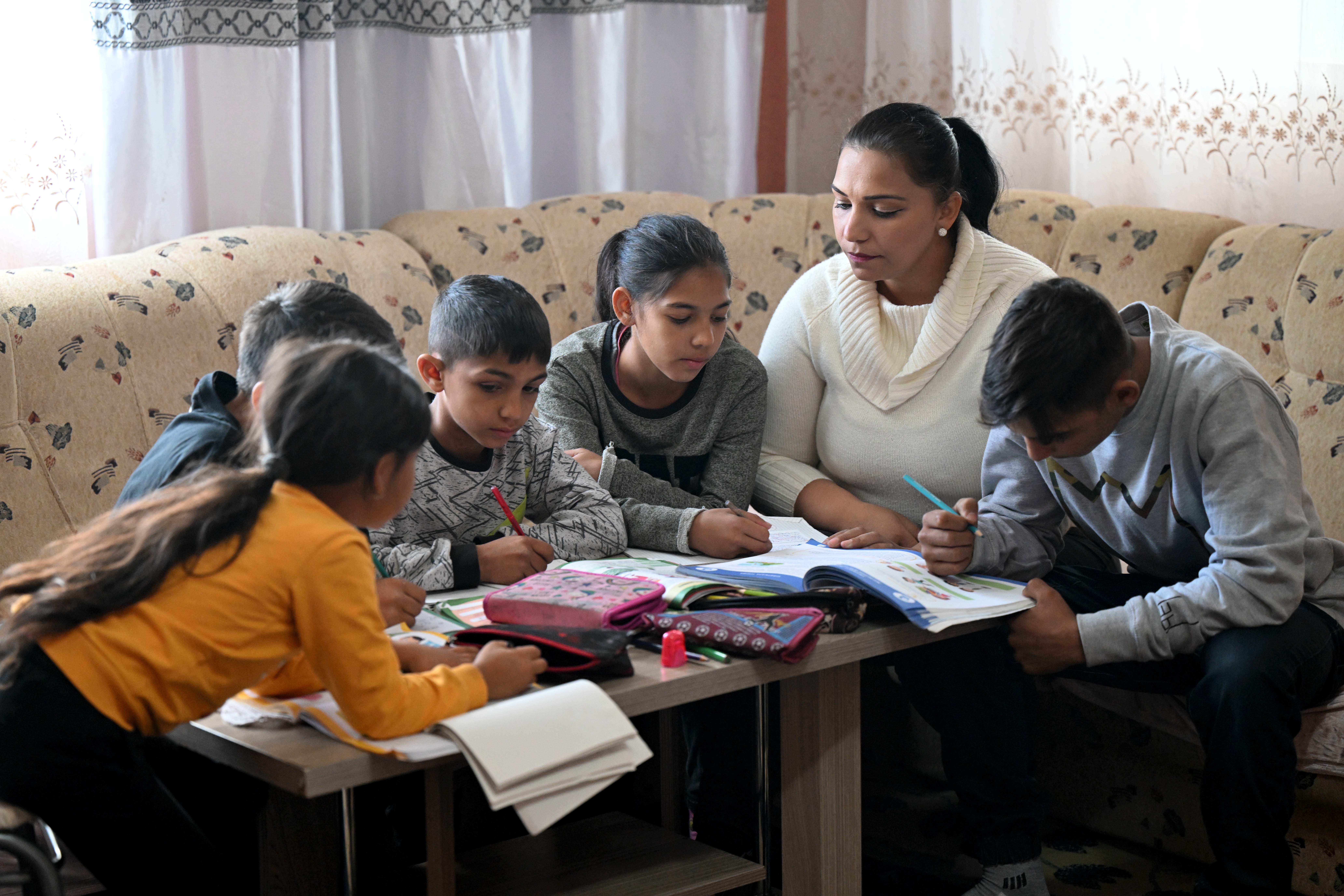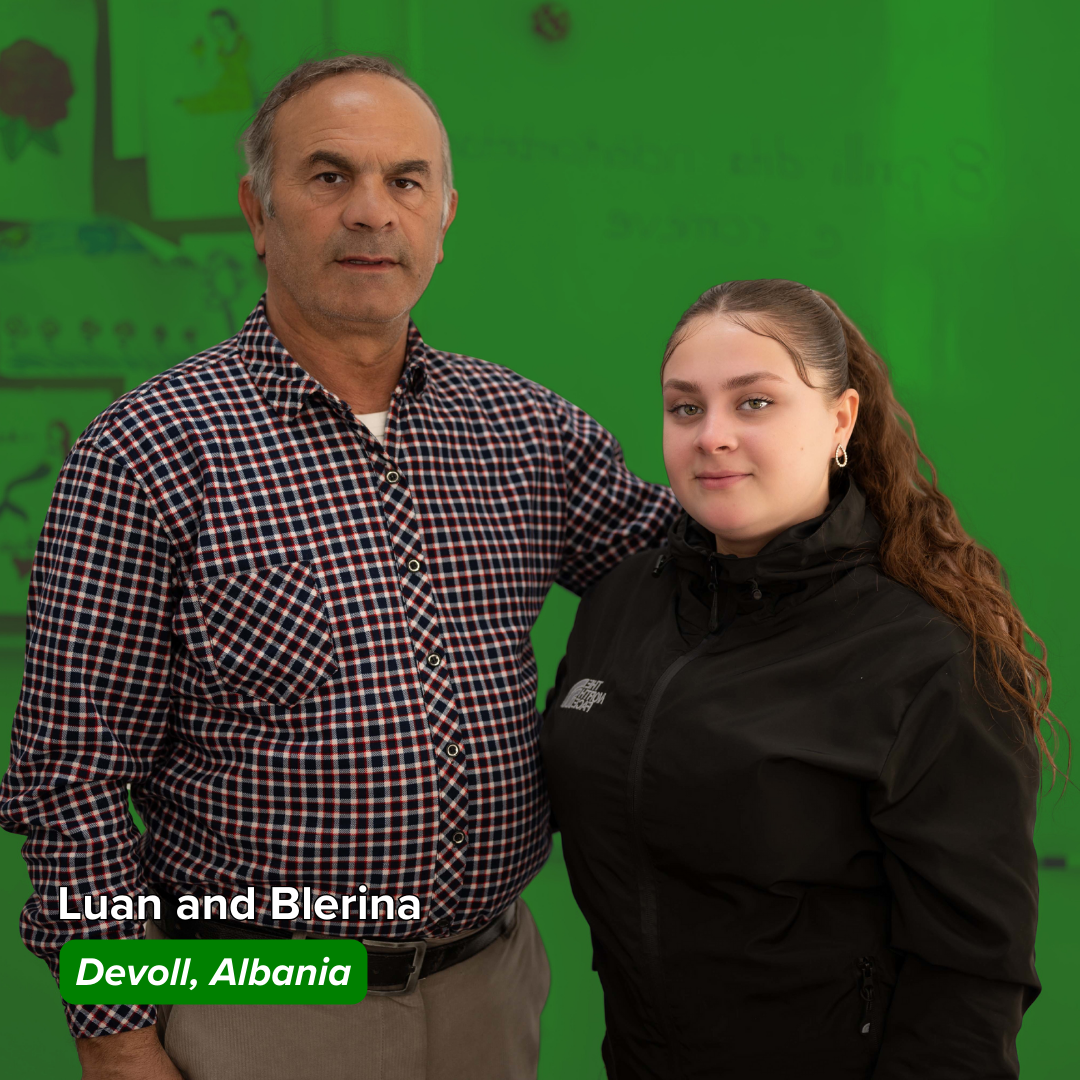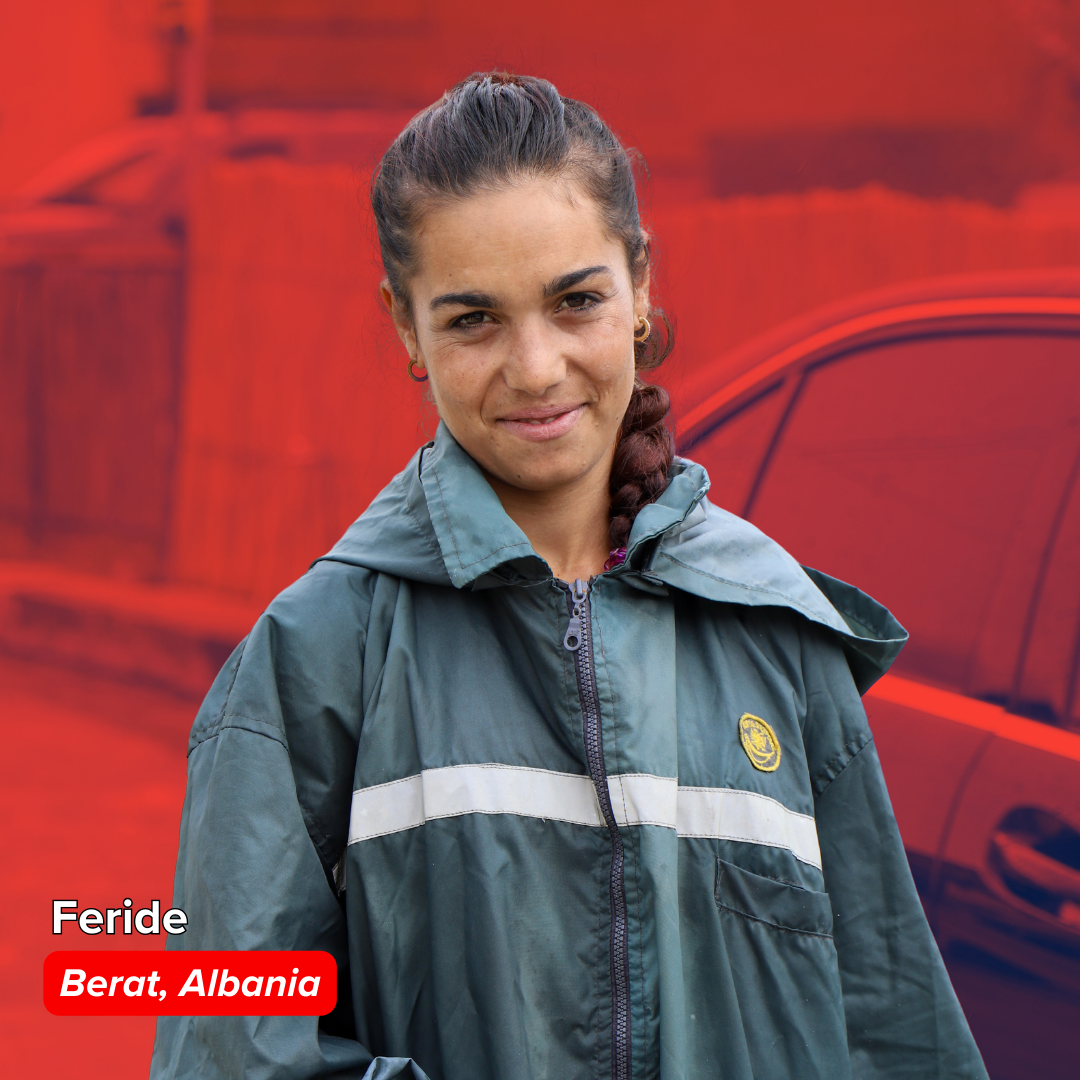Data can make the difference for Roma inclusion
April 3, 2024

Metula, a 29-year-old Roma returnee from the EU, found inspiration to return to education through her school-age children.
For the Roma* communities scattered across our region, vulnerable livelihoods and discrimination are everyday realities. While Roma have been resilient, they struggle with poverty and exclusion, and often invisibility.
Despite being one of Europe’s largest minorities, the lack of reliable data on the Roma population omits them from policy making and vital programming initiatives. The recognition of the overarching facts is an honest start, but they lack precision when explaining the deprivations that perpetuate poverty and exclusion. The remaining anecdotal evidence feeds common sense but fails to prompt targeted action and lasting effect.
While we have worked extensively with communities and municipalities in the Western Balkans, we are now turning our gaze towards the Caucasus, specifically Georgia, Moldova and Ukraine.
We know that populations are larger than estimated, potentially hundreds of thousands more than recorded. The existing barriers to Roma inclusion here have been complicated by different factors, such as the war in Ukraine and the Covid-19 pandemic. In Moldova and Ukraine, migration and internal displacement has compounded already-existing vulnerabilities of Roma people, many of whom were already in precarious and seasonal employment, with limited access to education, health and housing. In Georgia, though comparatively small in numbers, there are no national or local level policies for Roma inclusion, with little civil society representations.
Roma integration is part of the EU Accession criteria these three countries must fulfill. To develop programming to support these communities, and countries with their Roma agenda, we must understand better and gather more reliable and granular information.
Multi-country Roma survey
We are putting this idea into practice in Georgia, Moldova and Ukraine through a multi-country survey on the vulnerabilities of Roma. Along with our partners at the World Bank and EU, we see an opportunity to build a robust evidence base for Roma inclusion in these countries.
Big data can spark insights into poverty and inequality that help us discover different patterns on different scales, and adjusting what we measure for multidimensional poverty can help differentiate between "deprivation profiles" of people living in different locations. The evidence base we build on Roma people, through utilizing both quantitative and qualitative surveys, will illuminate the obstacles to social inclusion and foster local, national and international partnerships to initiate dialogue, galvanize action and help monitor the progress made.
We can change what we can measure
The lack of data on Roma men and women in Georgia, Moldova and Ukraine undermines arguments for building more inclusive societies. National censuses in many cases do not identify Roma people, and when they do, people can be reticent to report their Roma identities. As a result, substantial disparities emerge between estimates and existing census results. For instance, 2014 national census data from records approximately 9,300 people with Roma identity in Moldova; however, estimates exceed this number drastically with 100,000.
And it’s not just the numbers. The absence of robust data means we also cannot comprehend the country-level socio-economic disparities between Roma people and national averages. These disparities are not just from one factor, but are multi-dimensional – including income poverty, education, employment, health, housing, political and civic participation, discrimination, migration and access to personal documentation. Lack of data on multidimensional deprivations leads to fragmented and ad-hoc actions. What people report in surveys can overcome this, portraying material living conditions that reveal their needs.
But in too many instances, this exercise excludes the voices from the communities. Collecting qualitative narratives elicits nuances that complement survey data, capturing Roma communities’ perspectives missing in questionnaire responses. As narrators of their own conditions, they can reflect the complexity and diversity of their experiences, feelings and perceptions, and tools with which communities can approach social and economic challenges.
Filling in these voids will not only clarify our vision to see how Roma communities are marginalized; it will contribute to retaining policy and programming attention on these issues and measure progress towards unconditional inclusion.
Already during the project’s inception phase, we have seen a commitment to addressing the challenge of Roma exclusion. Our research can be used to define a common agenda for these different actors, synchronizing their efforts along a common thread to the data collection will be its impactful dissemination and utilization. By making data accessible and actionable, we can help local and national authorities drive meaningful change within Roma communities.
Learnings, evidence and data translate into action for better lives
These surveys on Roma well-being in Georgia, Moldova and Ukraine are not a new idea. In 2017, we conducted similar quantitative and qualitative surveys in the Western Balkans, where EU-candidacy also powers policies on Roma inclusion.
The data highlighted the intersection of socio-economic challenges experienced by Roma and returnees**, since in many Western Balkans countries, returnee individuals are predominantly Roma and in the poorest segment of the income ladder. With a specific attention to this overlap, we collected micronarratives to discern the challenges faced by Roma returnees, providing empirical evidence to guide programming.
To address the severity of housing, employment and education problems affecting returnees, we developed the EU-funded multi-country project Reintegration of Returnees in Albania, North Macedonia and Serbia, which focused on systemic solutions through policy-level and people-centered interventions for the socio-economic empowerment of and access to services by Roma returnee groups. (See below for some success stories.)
From the fielding of surveys to the programming that worked with returnees to create a better life back at home, our work in the Western Balkans stands as a model for what can also be achieved in Georgia, Moldova and Ukraine.
* The term ‘Roma’ is used to refer to a number of different groups (e.g. Roma, Sinti, Kale, Gypsies, Romanichels, Boyash, Ashkali, Egyptians, Yenish, Dom, Lom, Rom, Abdal) and includes Travellers, without denying the specificities of these groups.
** “Returnee” refers to individuals who return to their home country based on EU-issued return decisions.
UNDP's Reintegration of returnees project is helping vulnerable individuals across the Western Balkans by working with partners to implement holistic solutions to the economic and social empowerment of returnees. The initiative is supported by the European Union. Here are some of the people who have found success thanks to the project.

With her degree in environmental studies, Slavica, from Novi Sad, Serbia, ventured into a demanding job market, where her degree and skills did not match with market demands.
As she actively sought to overcome this challenge, she serendipitously discovered the trainings designed and offered by the Regional Returnee Reintegration Project, which changed her life. These trainings provided Slavica with opportunities to explore and realize her learning potential in new skill areas. With her training in QA testing ,and with newly acquired digital skills, Slavica has now steered her career into new fields and has taken up an administrative job, offering her prospects for future career growth.

Metula found inspiration to return to education through her school-age children. Leaving school early and marrying at a very young age, Metula left North Macedonia in search of a better life abroad. After her return, Metula embarked on her learning and literacy journey as part of the adult education programme supported by the Regional Returnee Reintegration Project. This was a key step that would help Metula build a better life back home:“First and foremost, I aspire to become a literate individual. Obtaining a certificate for completing primary education will open up numerous opportunities for me. It will also enable me to expand my knowledge and provide assistance to my children in their studies. I won’t miss out on job opportunities as I did before due to my lack of education.”

Luan and his daughter Blerina are committed to make Devoll, Albania an inclusive community. Luan is an appreciated figure in his community, promoting Roma inclusion and education of young Roma generations. A medical driver at the municipality’s Medical Urgency Services, he daily ensures citizens access their health care services.
Blerina, currently a high school student, also works also for the community’s well-being. She volunteers in the after-school classes for children at the Multifunctional Community Center, which are supported by the Regional Returnee Reintegration Project. Blerina helps children, from families that experience economic hardship, with their homework, as well as playing educational games with them and helping develop their social skills.

After many years trying to find her way out of poverty abroad, Fatime is back home with her two small children and living in a one-room place in Prilep, North Macedonia. Her children do not have formal birth documents, and this risks their enrollment to formal education.
Local NGO “PET”, supported by the Regional Returnee Reintegration Project, responded to her family’s challenges and helped enroll kids in primary school. The NGO is now also supporting Fatime to get other legal documents “After long years of institutional struggle, I now have the support I needed and someone who understands my problem. I can’t wait to get the formal legal personal documents, so I can continue with my life. Having a decent job to provide for my kids is my biggest dream…”

As a practicing student in vocational training, Uroš carefully listens to the sounds of cars in a repair shop in Valjevo, making sure that cars he repaired run flawlessly. He is taking part in the VET training, provided as part of the Regional Returnee Reintegration Project. It has paved the path for Uros’ internship in car repair shops in Valjevo. "Since I'm going to a technical high school, it was important for me to get an internship. So, I came across the Auto Mechanic Training and signed up right away. I was overjoyed when I found out that I was chosen! I learned a lot during the training, senior colleagues are always there to correct me and explain everything I'm interested in. I also got the opportunity to continue working in this service-shop, of course, as far as my obligations at school allow. And one day, I would like to open my own service-shop."

Feride once sought asylum in the EU and now is a returnee back in her hometown of Berat, Albania. To lift her family out of financial difficulties, with no previous formal work experience, Feride took the lead and proposed an idea for a business in a conventionally man-dominated service: car washing.
Feride received support from the Regional Returnee Reintegration Project to start her business. The EU-UNDP support – financial and business planning, mentoring and technical assistance, along with help for some equipment purchases - shouldered the weight of launching a business. Now, with her husband’s contribution as well, Feride’s growing family business successfully caters to customers.

 Locations
Locations